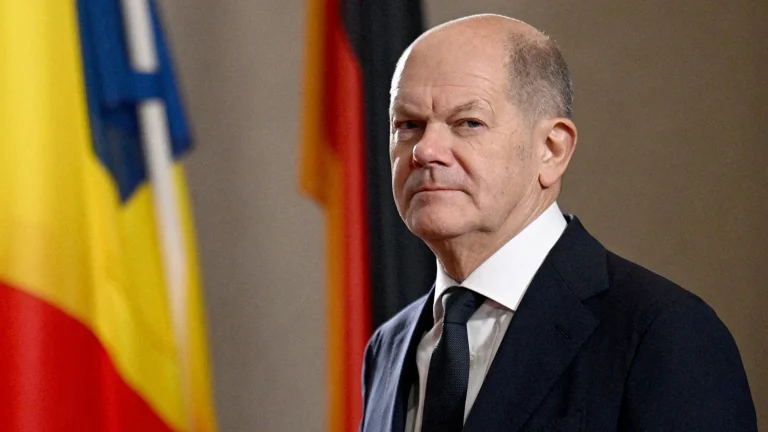German Chancellor Olaf Scholz has firmly rejected any “outside” interference in Germany’s elections, asserting that Germans alone will shape their democracy.
His remarks came in response to US Vice President JD Vance, who a day earlier delivered a scathing speech at the Munich Security Conference.

Vance’s address took European allies by surprise, as he shifted focus from the Trump administration’s plans for ending the war in Ukraine to sharply criticizing Europe’s policies.
He accused European leaders of suppressing free speech, failing to control immigration, and refusing to collaborate with hard-right parties in government.

Following his speech, Vance reportedly met with Alice Weidel, co-leader of the hard-right Alternative for Germany (AfD), for a private discussion on German politics and the Ukraine war. The meeting, which took place in a Munich hotel room, lasted about 30 minutes, according to a spokesperson for Weidel. The AfD, known for its anti-immigration stance, is currently surging in polls ahead of upcoming elections.
On Saturday, standing on the same stage as Vance, Scholz pushed back against the vice president’s comments, vowing that Germany would not tolerate foreign meddling in its political process.

“A commitment to ‘never again’ cannot be reconciled with support for the AfD,” Scholz declared, referencing Germany’s historical responsibility.
He went on to stress, “We will not accept outsiders intervening in our democracy, our elections, or the democratic formation of opinion in favour of this party—especially not from our friends and allies.”

Germany’s mainstream parties, including Scholz’s centre-left Social Democratic Party (SPD), have maintained a strict “firewall” policy against the AfD, refusing any cooperation with the far-right group.
During his speech, Scholz also signaled that Germany’s next government is likely to ease the country’s so-called debt brake—a constitutional rule that limits excessive borrowing—in order to boost spending on defence and security.

While Germany recently met NATO’s 2% GDP defence spending target, this remains well below the Trump administration’s new demand for member states to contribute 5%.




